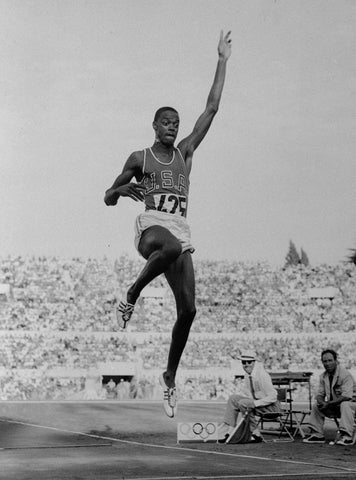
Introduction
From professional sports to rec sports, athletes all around the world are always searching for an edge against their competition. Since the origin of sports, the athletic pursuit of excellence has known no bounds. However, as science and technology constantly shift the sports landscape, athletes have changed and optimized their techniques. The days of steroid scandals in sports are mainly over, making way for a new hero in the realm of sports nutrition: creatine.

The History of Performance Substances
The 1930's marked the invention of anabolic steroids. However, their presence grew to professional sports and bodybuilding through the 50's and 70's. During the steroid era, steroids took over the athletic world, promising unparalleled gains in strength, performance, and muscle mass. From the barbell to the baseball diamond, athletes flocked to these synthetic compounds in pursuit of excellence.

However, as time would tell, the harmful effects of steroids became widely recognized throughout the athletic world. This forced professional sports organizations to take a stand against these destructive compounds. Professional sports organizations instituted bans against steroids, leading to the dawn of a new era. For the first time in decades, athletes were forced to seek alternatives to achieve their performance goals.
The Creatine Coup
With the steroid era coming to an end, creatine emerged as a suitable legal alternative to traditional steroids. But what exactly is creatine, and why has it been trusted by professional athletes since?

At its core, creatine is a naturally occurring compound found in muscle cells. Creatine it plays a vital role in energy production and provides energy to every cell in your body. ATP (adenosine triphosphate) is the primary energy currency of the body. When ATP is depleted during high-intensity efforts, creatine steps in to replenish it, allowing athletes to sustain peak performance for long periods of time.
Creatine vs Steroids
Creatine is not a steroid! Our bodies produce about half of what we need naturally, primarily in the liver, kidneys, and pancreas. Creatine's natural origin increases its credibility as a safe and effective supplement, whereas steroids are non natural.
Additionally, creatine is one of the most widely studied supplements in existence. Thousands of peer-reviewed studies attest to its efficacy in enhancing athletic performance. Research has clearly documented that creatine increases muscle mass and strength, improves anaerobic capacity, and reduces fatigue. While also being safe and legal, the benefits of creatine are well-documented and undeniable.
Furthermore, studies have shown that creatine supplementation aids in muscle recovery and reduces the risk of injury. This is because creatine accelerates the repair and regeneration of muscle tissue. These are both enormous factors for athletes, such as baseball players, that can play up to 162 games in a season. Supplementing creatine ensures that athletes can quickly recover from intense workouts or competition.

Ultimately, there is one aspect in particular that sets creatine apart from steroids: versatility. Unlike anabolic steroids, which primarily assist in muscle building, creatine can benefit athletes across a wide range of activities. Creatine's benefits expand far beyond muscle health, assisting in cognition and focus. Also, creatine provides the needed energy for short burst, high intensity activities such as sprinting and jumping.
Aside from its benefits, athletes trust creatine because of its legality and acceptance within the global sporting community. Unlike steroids, which are universally banned in competitive sports, creatine has received widespread approval from most governing bodies and sports organizations. This makes it a viable option for athletes seeking a legal and ethical means of enhancing their athletic performance.
Conclusion
In the constantly-changing landscape of professional athletics, creatine has stood as a primary example of science and innovation. From its humble beginnings as a niche supplement to its current status as a cornerstone of athletic nutrition, creatine has earned the trust and respect of athletes worldwide.
As we reflect on the turbulent history of performance-enhancing substances in sports, one thing becomes abundantly clear: creatine is not just a supplement; it's a symbol of integrity, efficacy, and the relentless pursuit of excellence. So, if athletes trust creatine to help them achieve their goals, why shouldn't you. After all, when it comes to unlocking our full potential, why settle for anything less than the best?
Whether you're a seasoned athlete chasing championship glory or a weekend warrior striving for personal greatness, remember this: with CON-CRĒT® Creatine HCl by your side, the possibilities are limitless. Take advantage of the power of creatine, and become your own champion today.
